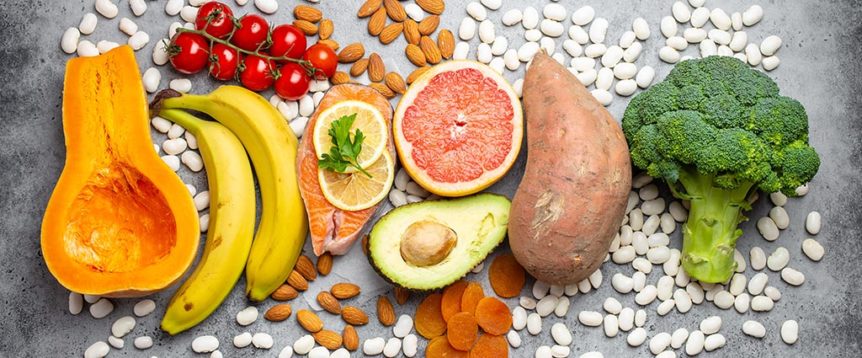› Health benefits
High blood pressure and stroke
A low intake of potassium can cause an increased risk of high blood pressure, especially with a diet high in salt. Decreasing sodium and increasing potassium in the diet can reduce the risk of stroke and lower blood pressure. The Food and Drug Administration has agreed that diets containing foods high in potassium and low in sodium can reduce the risk of high blood pressure and stroke.
Kidney stones
Potassium deficiency can deplete the amount of calcium in the bones and increase the amount of calcium in urine. Calcium in urine can form hard deposits in your kidneys (kidney stones). An increase of potassium in the diet can lower the risk of kidney stones.
Bone health
A higher intake of potassium has been linked to stronger bones.
Blood sugar and type 2 diabetes
A lower level of potassium can increase blood sugar levels, which can increase the risk of developing insulin resistance and diabetes. More research is needed to fully analyze how potassium and diabetes are related.
› How much do I need?
The recommended average daily intake of potassium is dependent on age and gender. For women, it increases during pregnancy and when lactating. Adults age 19+: 3,400 milligrams daily for men, and 2,600 milligrams for women. Pregnant women: 2,900 milligrams; breastfeeding women: 2,800 milligrams.
Not getting enough potassium is common in the U.S., even with high-potassium diets and supplements. People with inflammatory bowel disease (such as Crohn’s or ulcerative colitis), people on certain medications (such as laxatives or diuretics) and people with pica may have trouble getting enough potassium.
Low potassium intake can lead to increased blood pressure, deplete calcium levels in bones and increase the risk of kidney stones.
› In food
Foods with high levels of potassium include dried apricots, lentils, dried prunes, potatoes, squash, raisins, kidney beans, orange juice, spinach, milk, beef, tomatoes, soy milk and more.
› Dietary supplements
Potassium is found in many multivitamins and as a stand-alone supplement. It can be in the form of potassium chloride, potassium citrate, potassium phosphate, potassium aspartate, potassium bicarbonate and potassium gluconate.
Source: National Institutes of Health, Office of Dietary Supplements
Please consult your health care provider before making changes to your vitamin/supplement regimen.


